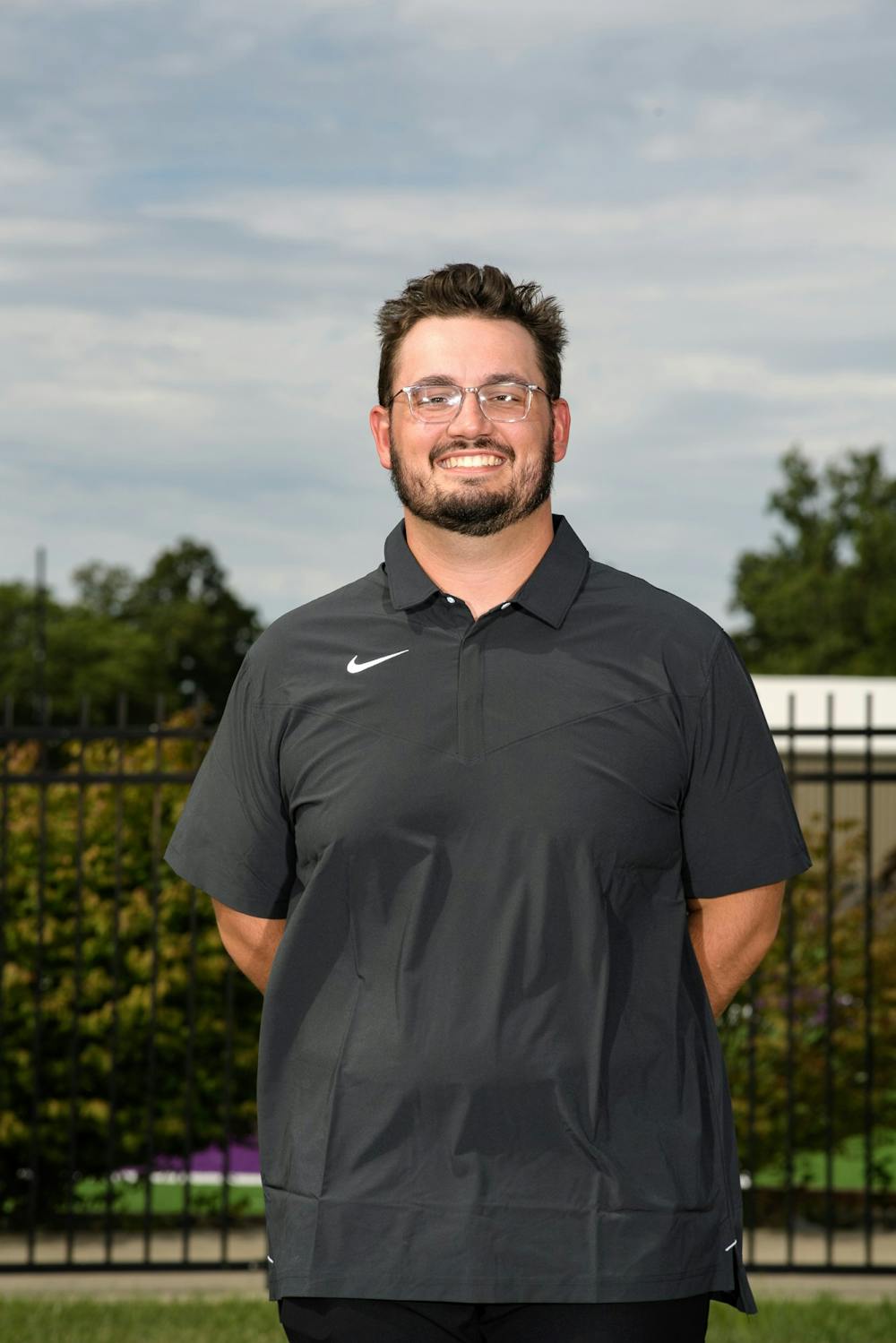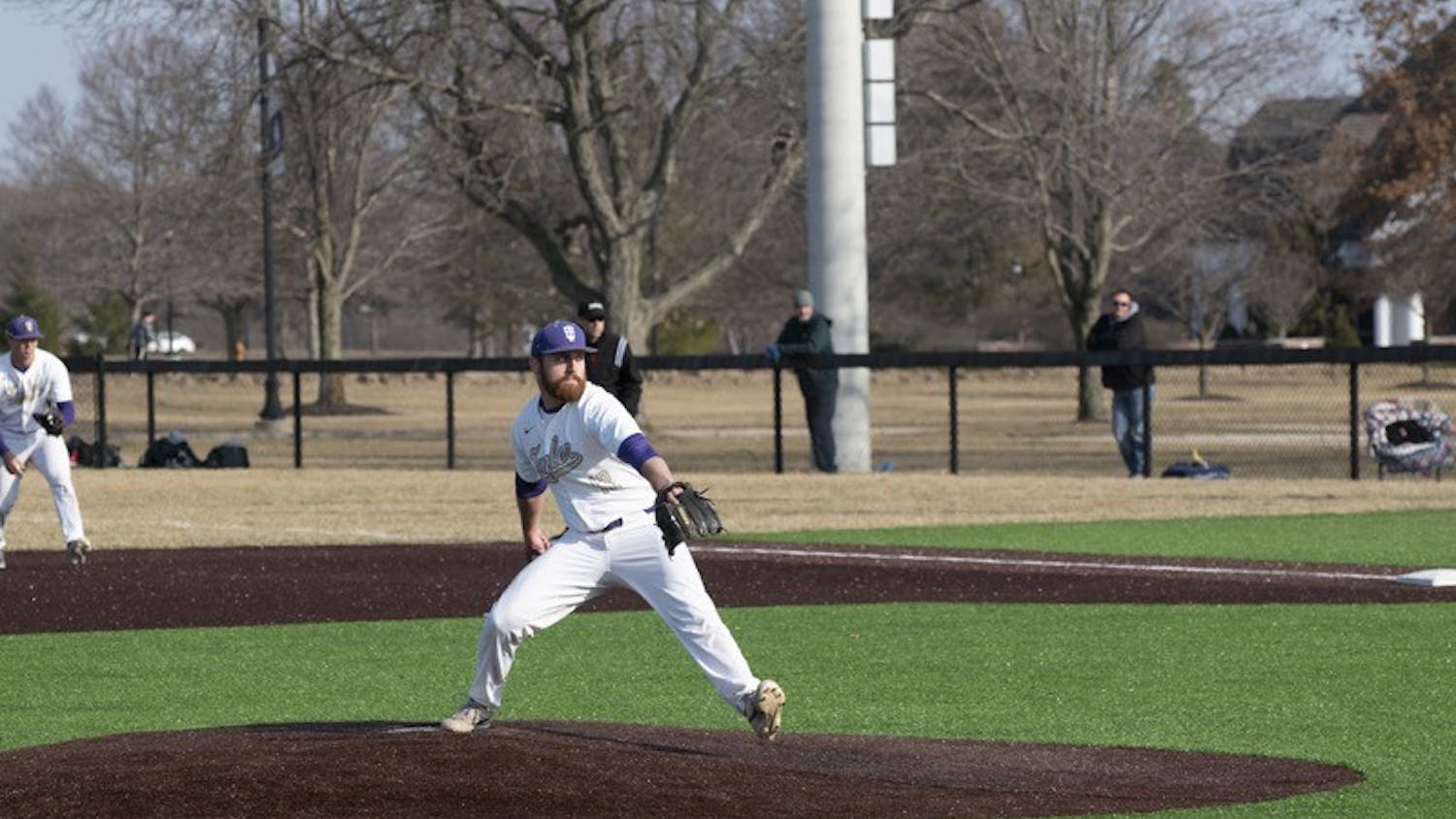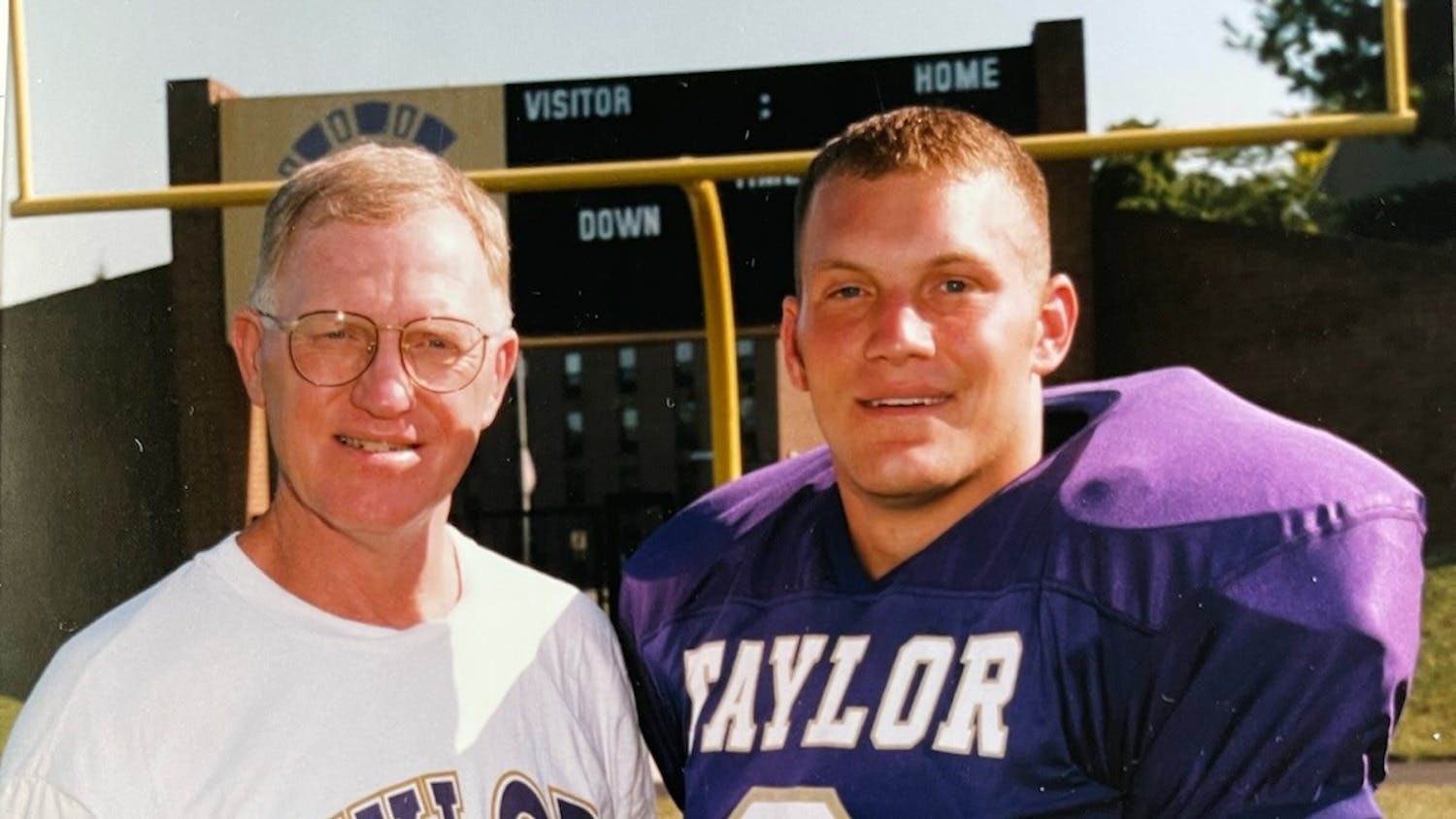Despite never playing a live snap for the Taylor football team, senior Sam Wilkinson has had a large impact on the team on and off the field.
Wilkinson came to Taylor from Western Boone High School in Thorntown, Indiana where he was an offensive lineman on a state championship winning team in 2018, his senior year. He also drew attention from Franklin College and Eureka College, two NCAA Division III schools, but felt that Taylor was where he needed to be and signed for the Trojans.
His freshman year of college football looked similar to his freshman year of high school football, with limited playing time, but he hoped that he would progress in college like he did in high school with year after year improvement.
Unfortunately, that would not happen.
Wilkinson’s sophomore year of football started off on a bad note when he sprained his ankle in a preseason workout which kept him completely out of fall practices. That particular fall was the season where games were postponed to the spring, this circumstance would have given him enough time to heal and be ready to play.
In Nov. 2020, a different issue came up and Wilkinson went to the doctor where they found his blood pressure was high. They checked his blood for a number of issues and found that his platelet levels were low. A normal platelet count for a person is between 150,000 and 300,000. His platelet count was around 70,000.
By late December, Wilkinson’s platelet count was back up to 110,000 and although doctors continued to monitor his platelet count, he was allowed to practice football when he came back from winter break.
His platelet count fell once again though and he was recommended to see a blood specialist who diagnosed him with immune thrombocytopenic, otherwise known as ITP. It is a disease where your immune system attacks your own platelets, rather than making them. Due to this disease, doctors recommended that he not play football that year. The disease makes concussions even more deadly than they are because it continues the bleeding in the brain. As an offensive lineman, concussions were a higher possibility than other positions.
The disease, Wilkinson thinks, may have been caused by COVID-19 because ITP cases have risen since the start of the pandemic.
In hindsight, the sprained ankle in the fall may have saved him from a life-threatening concussion as the injury kept him from practicing.
As the spring season went on, Wilkinson had many doctor appointments where his platelet counts continued to fluctuate below the normal count. He tried to find ways to help out in practices and games by being a ball boy and helping out with drills.
“He had to be an encourager because he wasn’t able to play,” senior tight end and team captain Drew Bagley said. “He was really supportive of the people around him.”
In the summer of 2021, Wilkinson continued to prepare to play by lifting weights and running. He also tried a treatment that worked for a short period of time, but unfortunately did not work long term. After this, he made the decision to stop playing and move into a new role. He dreaded telling the team, fearing that they may not accept it because he was making the decision, not a doctor. The team understood completely though, accepting and respecting his decision.
New head coach at the time, Aaron Mingo gave him the role of student assistant coach, specifically helping with the offensive line and he helped with spotting the ball during practices. Wilkinson tried to make the most of it, but still did not feel like he was bringing value and wanted to be out there playing.
“I felt like there was more I could give; I just did not know how,” Wilkinson said about his involvement.
In the offseason, Mingo asked if he was interested in a bigger role, something that Wilkinson was interested in. Mingo offered him a spot as the position coach for tight ends, a position he played at one time but did not understand completely. He accepted the position for the upcoming season. Wilkinson started to lead drills in offseason workouts and took the time to learn the tight end position more.
One of his best memories is when Mingo announced to the team that he was the new tight ends coach. Wilkinson was nervous about the team knowing, but that anxiety was gone when the team gave a resounding approval in the meeting, a reaction that nearly brought him to tears.
In this new position, Wilkinson felt he was finally bringing the worth he wanted to bring.
“I am blown away by who he is, impressed by him and really thankful that God’s got him in our program,” Mingo said.
Off the gridiron, Wilkinson has many different roles. He is currently the Discipleship Coordinator for Bergwall Hall, a position that helps to lead the Discipleship Assistants on the respective floors. He is also the president of the Sport Management Club on campus, a club that helps sport management majors to network with professionals and help with professional development.
Wilkinson also leads the community outreach for the football team, an area he specifically asked to help lead. He is most involved with the Lift program run at Upland Community Church, a program that helps local kids to learn how to read. He brings players from the team over to help the kids and positively impact them. Players are also sent to the Red Barn to help out there. The team has also helped pack meals through the Future Farmers of America. He helped to organize a free youth camp last spring after a practice that brought nearly a hundred kids for an afternoon of football.
“We aren’t doing it in order to grow our own name and image; we are doing it to grow the name and image of God,” Wilkinson said.
After graduation, Wilkinson wants to be in a role that helps people. He thinks that coaching will be in the future for him, but he also wants to be in a role that helps college athletes whether it be in professional development or academic advising. Whatever he chooses to do, it is a safe bet that he will do it well.





